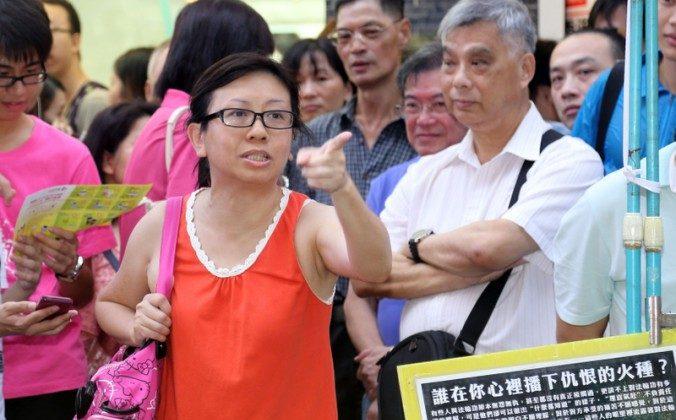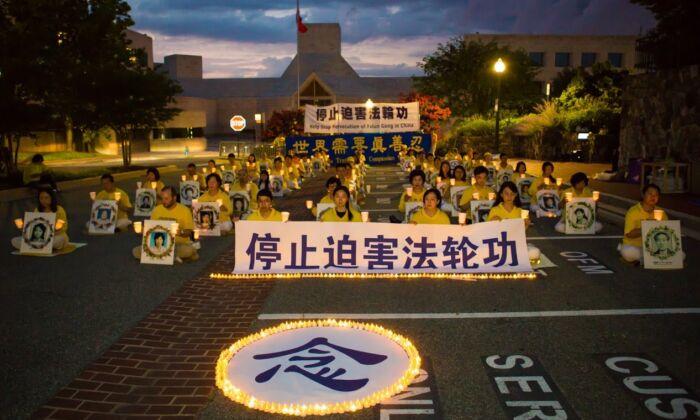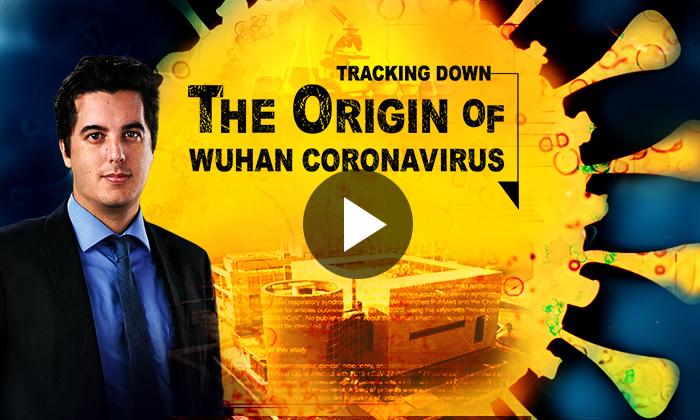The teacher who used curse words when she scolded Hong Kong police for failing to protect freedom of speech has been penalized by her school’s board. The action follows upon pro-Communist Party media outlets having launched a campaign targeting her and the intervention in the teacher’s case by Hong Kong’s chief executive.
Primary school teacher Lam Wai-sze told the Hong Kong Standard that on Aug. 21 she was given a verbal warning by the board of the Pui Ling School of the Precious Blood.
A verbal warning is more severe than the lightest possible penalty, a reminder, but less severe than other possible penalties, a written warning or a termination. The penalty will not affect her contract, Lam told the South China Morning Post.
The school has submitted documents regarding Lam’s case to the Hong Kong Education Bureau, which has promised to submit a report to Hong Kong Chief Executive Leung Chun-ying by the end of the month.
The tone of the public statement subsequently issued by the board was apparently not consistent with what was said to Lam during her meeting with the school’s disciplinary committee.
“As Lam’s inappropriate behaviour severely damaged the professional image of teachers as well as our school’s reputation, the committee decided to penalise the teacher and report it to the bureau,” read the statement, according to the South China Morning Post.
Lam told the Standard that her meeting with the school had brought her “to heaven” but that she then found the wording of the school’s statement “very harsh.” She complained that she was never given the chance to defend herself before the school council, when it met twice to discuss her case.
The school’s statement asked that Lam be given a second chance, noting that she had previously apologized to the school, students, and parents. The statement also complained that the school had been “bombarded with calls, e-mails and letters.” “Please let us get back to our normal operation,” the statement read.
Media Firestorm
The school’s plea to be left alone reflects the intense interest that media linked to the Chinese Communist Party have aroused in Lam’s case, which grew out of an incident on July 14 on Sai Yeung Choi Street in the Mong Kok district.
A crowd of Hong Kongers had spontaneously gathered to watch, and in many cases to loudly condemn, the actions of a CCP front group—the Hong Kong Youth Care Association—as it harassed Falun Gong practitioners. Police on the scene did nothing to interfere with the Association.
The crowd’s mood was raucous and there were several physical confrontations. In one incident, the Youth Care Association leader grabbed someone around the neck who had been haranguing the group and held him while two female members kicked him.
Lam vigorously waved her finger as she accused the police of doing nothing to protect freedom of speech. She spoke of her disgust with the Youth Care Association, of how “extremely evil” the CCP is, and of how “the CCP’s killing people to harvest their organs for sale is known to the entire world.”
In the course of her remarks she used one English and two Cantonese curse words. Soon afterwards, an edited video was published on pro-CCP media outlets of Lam’s encounter with the police that focused almost solely on her use of those three words.
The video went viral and overnight Lam became a sensation in Hong Kong.
Soon afterwards other videos emerged through other media outlets showing all of her remarks and the context in which they were made, and the battle lines were drawn, as many Hong Kongers, including the city’s democracy activists, came to her defense.
Lei Yi Ling, a freelance writer, wrote in the Apple Daily that the video was “another example of the Chinese Communist Party’s methods of slander.”
The chairman of the largest pro-democracy group in Hong Kong, the Hong Kong Alliance, Lee Cheuk Yan told the Epoch Times, “Hong Kong citizens should stand up in support of Lam and resist the Chinese Communist Party’s online slander.”
Meanwhile, pro-CCP media carried front page stories on an almost daily basis attacking Lam.
‘Chilling Effect’
On Aug. 11 at a town hall meeting, Leung Chun-ying inserted himself into the controversy by saying that he would direct the Education Bureau to investigate Lam. Soon after that meeting, the Mong Kok police announced they would launch a criminal investigation of her.
A former underground CCP member in Hong Kong accused Leung of being a CCP member in a book published last year. According to Party insiders, Leung’s management of the Lam incident has been directed behind the scenes by the former Politburo Standing Committee member Zeng Qinghong.
The day after the town hall meeting, the Professional Teachers’ Union (PTU) posted a statement on its website “condemning the Machiavellian Leung’s dividing of society.”
The statement characterized Leung’s requirement for the Education Bureau to issue a report on Lam as something that is rarely done and is “never appropriate.”
“Mr. Leung must maintain impartiality and neutrality and should not provoke social antagonism, nor manufacture public opposition,” the statement said.
The PTU accused Leung of “creating great pressure from public opinion on the schools” so that schools had difficulty handling matters in a professional way.
Finally, the PTU statement said Leung’s handling of Lam’s case created a “chilling effect” and “panic” meant to warn people away from criticizing government policies. The PTU warned that coercion by Leung could not take away the rights and freedoms of Hong Kong’s citizens, which are protected by international covenants and Hong Kong’s Basic Law.
After learning about the statement issued by the school board, Lam posted a message to her Facebook page saying she was considering resigning. According to the South China Morning Post, within one hour some 200 people sent messages to her Facebook, most of whom urged her to stay.
After taking the month of September off, Lam, who in 2010-2011 won the coveted Hong Kong Chief Executive’s Award for Teaching Excellence for moral and civic education, will return to her post at the Pui Ling School of the Precious Blood. According to the Standard, the school principle insists Lam chose to take the month-long leave.
In an interview given before the penalty was handed down, Lam saw her case as symptomatic of a general threat to freedom in Hong Kong.
She told the Hong Kong paper Hei Zhi, “Freedom of speech, freedom of belief, when he [Leung Chun-ying] dares to destroy anyone not to his liking, then it’s all over! I’m worried about this.”






Friends Read Free